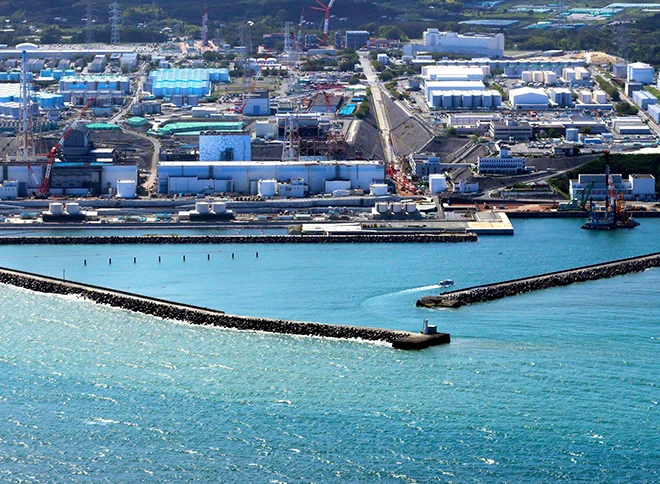Fishy Business: The Trade Dispute Between Japan and China over Japan’s Release of Treated Nuclear Wastewater
Twelve years after a major earthquake and tsunami led to the Fukushima nuclear disaster, effects of the catastrophe linger, most recently impacting the fishing industry of Japan. As part of the cleanup, radioactive wastewater has been stored at Fukushima since 2011, and now over 1,000 storage tanks have nearly reached their capacity. On August 24th of this year, Japan began its long-planned release of treated radioactive wastewater from the plant, which will take place slowly over several decades. One radioactive element in the wastewater, tritium, cannot be removed; however, the UN’s International Atomic Energy Agency (IAEA) reported that the release was consistent with IAEA Safety Standards and the discharges would have a “negligible radiological impact.”
Some members of the scientific community remain skeptical of the IAEA’s claims. The National Association of Marine Laboratories, based in the U.S., released a paper in December 2022 opposing Japan’s plan due to a lack of adequate data, and warned that radioactive chemicals can accumulate in aquatic food chains irrespective of whether they can be diluted by the ocean.
The release prompted China, Japan’s largest trade partner, to enact a total ban on all Japanese seafood products over concerns of radioactive contamination. China is Japan’s largest seafood export market, accounting for approximately 22.5% of Japan’s total seafood exports, although Japanese seafood accounts for only 4% of China’s seafood imports. Hong Kong, Japan’s second largest seafood export destination, also banned seafood from several Japanese prefectures near Fukushima. The bans have had a serious impact on Japan’s fishing industry, although the main market for Japanese seafood is its national one.
The Japanese government announced an emergency fund to assist exporters, in addition to providing support for fisheries and seafood processing plants. The government has also attempted to develop new export markets and freeze and store excess seafood until it can be sold when demand recovers. Japanese officials indicate they plan to target new markets including Europe, the Middle East, the United States, and Southeast Asia.
Japan has also pressured South Korea to resume its seafood imports from Fukushima as China’s ban continues. Since 2013, South Korea has banned seafood from Japan’s Fukushima prefecture and seven nearby regions over contamination fears. In 2015, Japan lodged an official complaint with the World Trade Organization (WTO) against Korea’s ban. The WTO ruled in favor of Japan in 2018, but on appeal, the ruling was overturned on a technicality and the WTO ruled in favor of South Korea in 2019.
China’s total seafood ban has led to discussion within the Japanese government that Japan could file a complaint with the WTO to pressure China to remove the ban. The U.S. ambassador to Japan, Rahm Emanuel, indicated Japan would have the support of the U.S. in a WTO dispute. A formal WTO complaint could result in new rulings under the WTO Agreement on the Application of Sanitary and Phytosanitary Measures (SPS agreement), which notes that “all WTO members have the right to take SPS measures for the protection of human, animal or plant life or health so long as they comply with the terms of the agreement.”
The deterioration in Japan’s relationship with China has also been affected by its closer relationship to the United States and South Korea in recent years, and territorial disputes over the Senkaku Islands in the East China Sea, which are controlled by Japan but claimed by both Japan and China. Japan has also recently imposed restrictions on exports of its chip-making equipment to China. While it has had a significant impact on Japan’s seafood export market, seafood makes up less than 1% of Japan’s total exports, which is primarily automotive. Even if China were to ban all food imports from Japan, the estimated total impact on Japan’s GDP would only be around 0.04%.
Article Written by Elaine Sharpe
Sources:
https://www.voanews.com/a/japan-boosts-aid-for-seafood-exporters-hit-by-china-s-ban-/7254176.html
https://www.bbc.com/news/world-asia-66613158
https://apnews.com/article/japan-fukushima-china-seafood-ban-relief-70f789ed720eb5d2b419d444de13cecc
https://apnews.com/article/japan-seafood-china-wto-fukushima-e5a6cbe05bb9b2fe93cce8ced682d201
https://www.koreatimes.co.kr/www/nation/2023/09/113_354089.html

